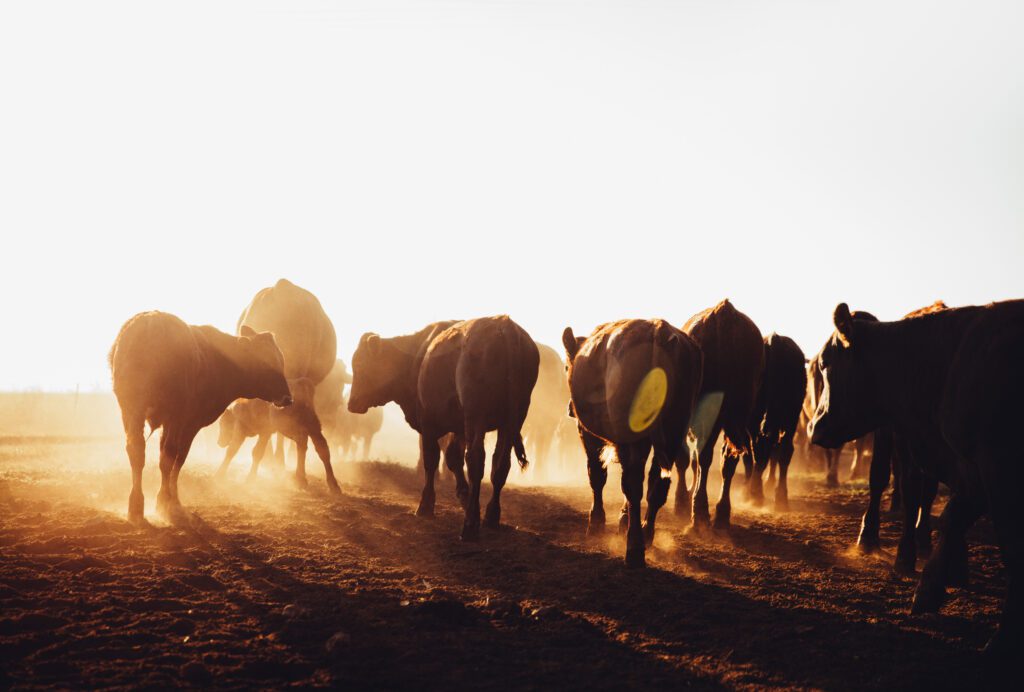Florida’s Extreme Heat Presents Challenges for Growers, Ranchers, and Animals
by K. MICHELE TRICE
Most scientists have agreed that July was the hottest month in recorded history. The first three weeks of the month were the hottest three-week period on record, and that heat is being felt intensely in Florida where the average July temperature averaged several degrees warmer than usual. Add the humidity into the mix, and the heat indices are reaching the triple digits.
That kind of heat is presenting multiple challenges for growers and ranchers throughout the state.
“This heat is tough on cowboys, ranchers, and animals themselves,” says Gene McAvoy, owner of Have Gun Will Travel Agricultural Consulting and Regional Vegetable/Horticulture Extension Agent IV Emeritus.
“You have to be careful to not push the cattle too hard,” he says. “You want to make sure you provide shade and water 24/7. If you have to move them from one pasture to another, you do it slowly and early in the morning.”
Dr. Kim Morgan, Associate Professor, Extension Economist with the Southwest Florida Research and Extension Center at the University of Florida, says animals on Florida ranches and farms are experiencing the heat the same as humans.
“No one wants to go outside,” she says. “If you do, you go out early in the morning and then again late in the evening. Ranchers are trying to keep their critters cool. You’ll see cows sitting in the water to cool off.”
She says ranchers are also looking to provide shelter and additional water supplies for their animals. But the animals aren’t the only ones that need additional precautions.
Growers and ranchers need to be proactive about hydrating properly, wearing appropriate clothing, and taking necessary breaks. McAvoy and Morgan both speak to the importance of being aware of symptoms of heat illness.
“Staying hydrated is important,” McAvoy says. “A lot of people don’t realize how much water you have to drink to hydrate in this weather.” A bottle of water an hour is recommended, he shares.
Both McAvoy and Morgan say it is fortunate that most crops aren’t being picked this time of year. Morgan says avocados and mangos are ready for picking right now but citrus has already been harvested and most vegetables not yet planted.
For growers still harvesting, “they are being innovative and allowing workers to come in during times that are comfortable,” Morgan says. “Shade cloths have been put up to try to keep people cooler, as well.”
McAvoy says that if the heat continues into the citrus harvest, the plants themselves can get sunburned, but there are products that can be sprayed onto the plants. “It’s basically sunscreen for plants,” he says.
Morgan says even native-born Floridians need to be aware of early indicators of heat illness.
“You have to allow for acclamation to functioning at a high level in this heat,” she says. “You have to build up a tolerance to the heat. Our bodies will acclimate. The idea of acclimation is credible and proven. It’s worth taking baby steps.”
“People don’t realize what is happening with heat illness,” Morgan says. “One of the key things is you become confused pretty quickly and may not be able to make good decisions. Use the buddy system. Someone can see if you are scattered, confused, flushing. They can take steps to get you out of the sun and cooled down quickly.” She stresses that it is vital to not leave someone with signs of heat illness alone as it can progress quickly.
Morgan describes the three levels of heat illness as:
- Level 1 – Individuals experience heat cramps in the belly or legs or both; headache; dizziness; and confusion.
- Level 2 – This level is considered heat exhaustion. Individuals experience heavy sweating; signs of weakness; cold, pale, clammy skin; nausea and vomiting; and their pulse is weak.
- Level 3 – This level is heat stroke. Individuals experience a high body temperature; the skin is now hot, red, and dry; they may faint or become unconscious; and they may experience convulsions. Heat stroke can be life threatening.
“Heat stress can be dangerous and fatal,” McAvoy warns. “Stay hydrated. Take breaks.”

